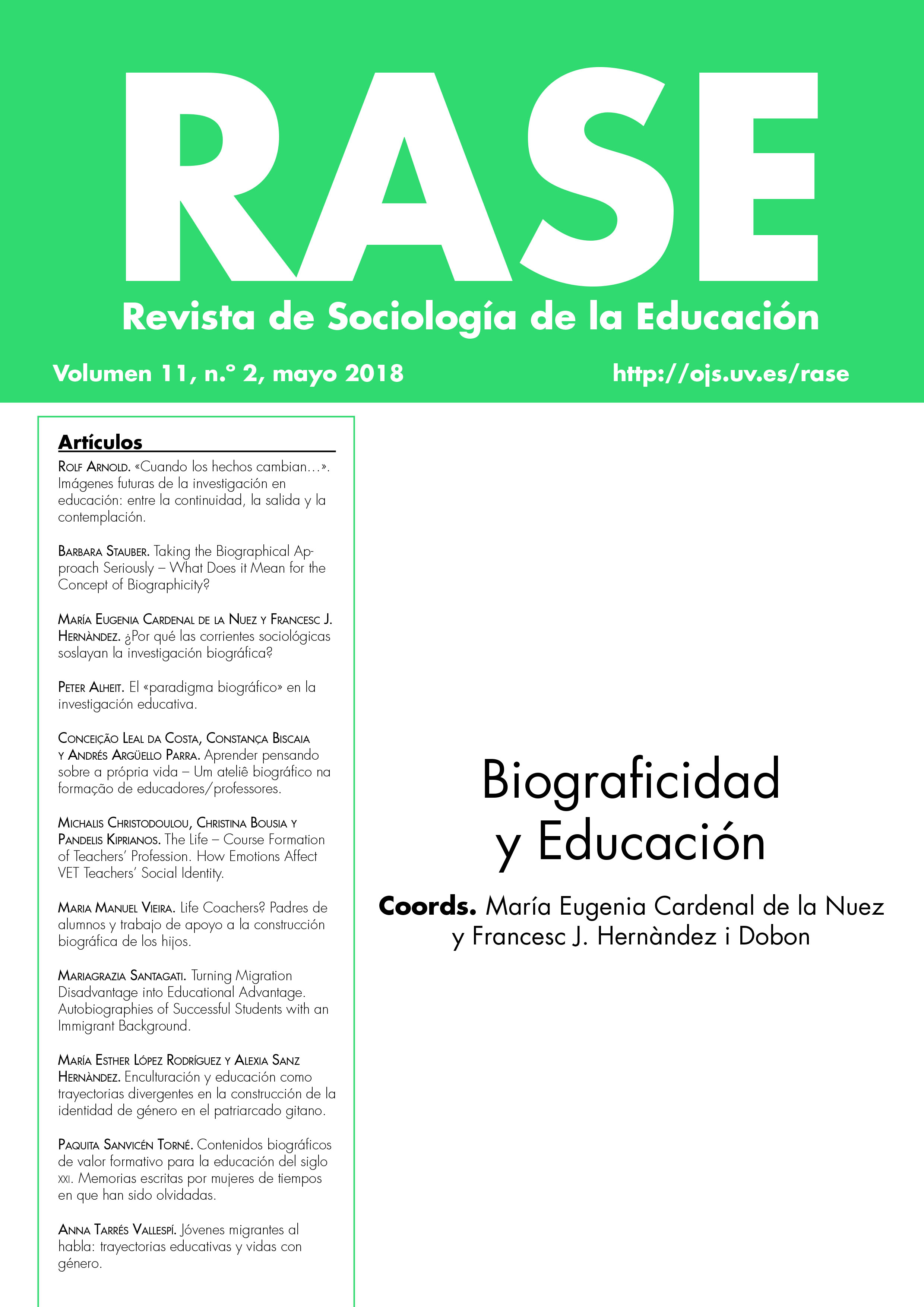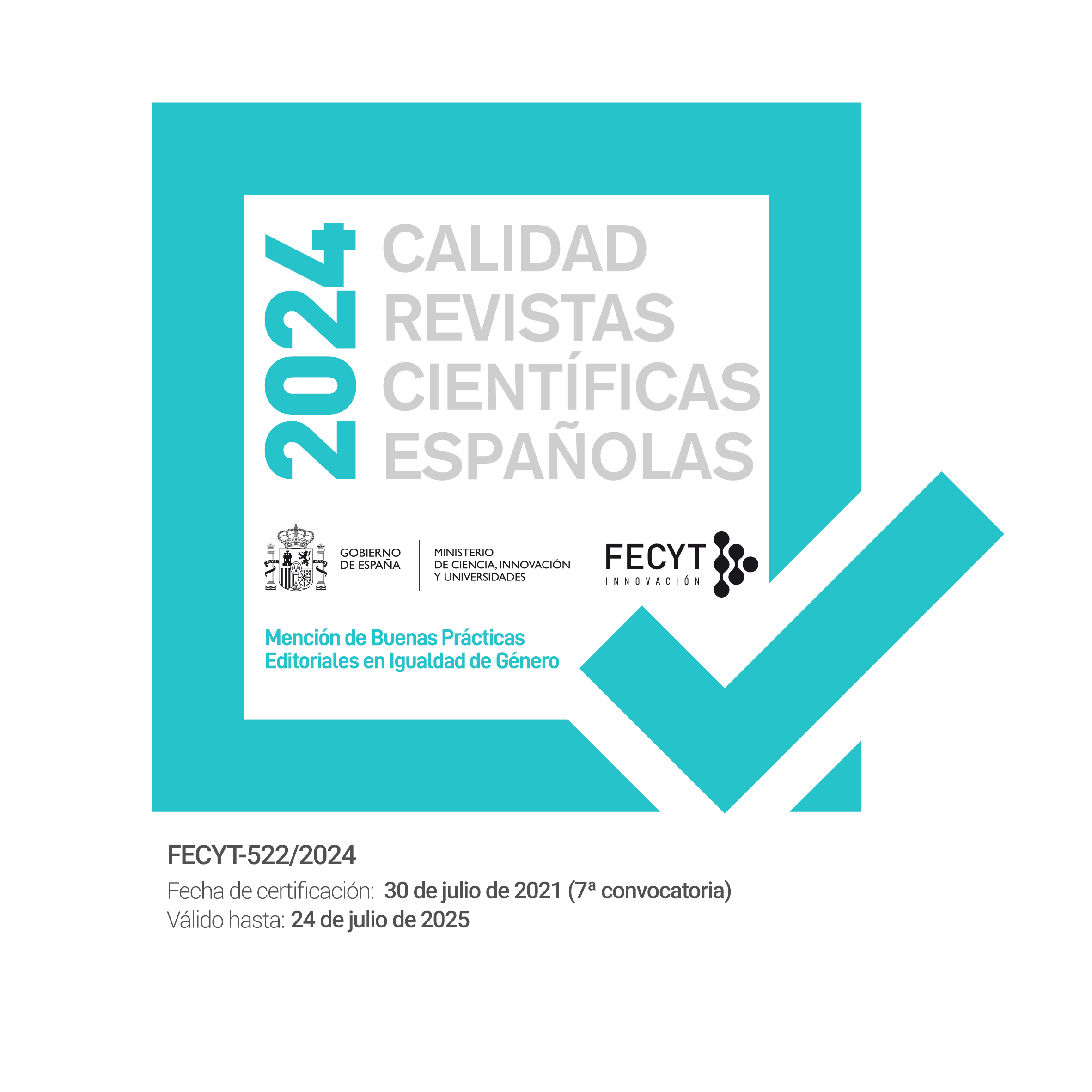Taking the Biographical approach seriously – what does it mean for the concept of biographicity?
DOI:
https://doi.org/10.7203/RASE.11.2.12305Palabras clave:
biograficity, sociality, poststructural criticism, performativity, transformative aspects, education. Resumen
Resumen
The article starts from the dialectic relationship between “the biographicity of the social” and “the sociality of the biographical” – a relationship especially underlined in the works of Bettina Dausien (e.g. 2006). Starting from here, we have not only to look at “what” is reconstructed here, but also “how” this reconstruction is presented . By this, the complex powerful social processes of “addressing” and “being addressed” come into the center of interest (Rose/Ricken, 2018:).
Addressing and the way people let themselves “being addressed” (Althusser) – if and how they let themselves being addressed – this question opens up for processes of subjectivation, as has been conceptualized by Judith Butler and earlier by Michel Foucault: within subjectivation, people undergo a (powerful) process of submission, but within the same process and at the same time they become subjects. It is this paradoxical simultaneity of two movements – submission and becoming a subject – which makes the concept of subjection so fruitful as an analytical tool. The concept of subjection also gives space for the modifications, in which people could (and do) respond – and thus to their agency, and their (maybe subtle) subversion. Judith Butler would frame this with the concept of resignification.
 Descargas
Descargas
Descargas
Publicado
Cómo citar
-
Resumen680
-
PDF 396
Número
Sección
Licencia
![]()
Esta obra está bajo una licencia internacional Creative Commons Reconocimiento-NoComercial-CompartirIgual 4.0 Internacional.
Aquellos autores/as que tengan publicaciones con esta revista, aceptan los términos siguientes:
- Los autores/as conservarán sus derechos de autor y garantizarán a la revista el derecho de primera publicación de su obra, el cuál estará simultáneamente sujeto a la Licencia de reconocimiento de Creative Commons que permite a terceros compartir la obra siempre que se indique su autor y su primera publicación esta revista.
- Los autores/as podrán adoptar otros acuerdos de licencia no exclusiva de distribución de la versión de la obra publicada (p. ej.: depositarla en un archivo telemático institucional o publicarla en un volumen monográfico) siempre que se indique la publicación inicial en esta revista.
- Se permite y recomienda a los autores/as difundir su obra a través de Internet (p. ej.: en archivos telemáticos institucionales o en su página web) antes y durante el proceso de envío, lo cual puede producir intercambios interesantes y aumentar las citas de la obra publicada.













